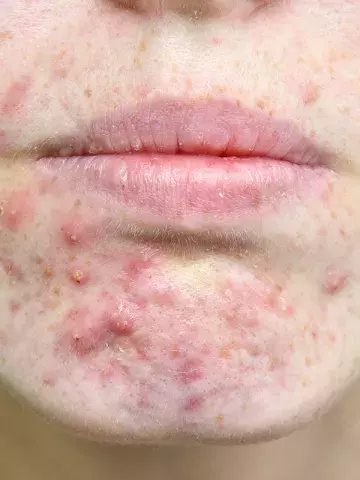Spironolactone: an effective alternative to antibiotics for acne in women
By Michael Doris MB BS
Spironolactone may be a valuable alternative to oral antibiotics in the management of women with acne vulgaris, according to results from a UK study recently published in the BMJ.
Spironolactone is a potassium-sparing diuretic often used in the management of hypertension, but dermatologists have been prescribing it off label to treat acne, for years. Despite this, the evidence for the benefit of spironolactone in acne is not robust, with the largest randomised controlled trial including only 34 participants, the researchers said.
They noted that long courses of oral antibiotics were often prescribed for people with acne, and stressed that alternatives to antibiotics were urgently needed to prevent the growing rate of antimicrobial resistance.
To assess the efficacy of spironolactone for acne vulgaris in women, the researchers conducted a pragmatic, multicentre, phase 3, doubleblind, randomised controlled trial in 410 women aged 18 years and older (mean 29.2 years). All participants had experienced facial acne for at least six months, at which time, guidelines typically indicate oral antimicrobial therapy.
Participants were randomised to spironolactone 50 mg/day (n=209) or matching placebo (n=209) for six weeks, increasing to 100 mg/day spironolactone or placebo until week 24. All participants could continue regular application of topical treatment.
Outcomes were measured using the AcneSpecific Quality of Life symptom subscale, with the spironolactone group scoring a mean of 13.2 at baseline (versus 12.9 with placebo), 19.2 at week 12 (versus 17.8 with placebo) and 21.2 at week 24 (versus 17.4 with placebo).
Secondary outcomes included participant self-assessed improvement, adverse reactions and the investigator’s global assessment for treatment success. The treatment success score at 12 weeks was 19% in spironolactone users compared with 6% in the placebo group.
Although no serious events were observed, adverse reactions were slightly more common in the spironolactone group (headache being the most common).
‘This study confirms what most dermatologists already know ... that spironolactone is an effective medication for women with acne, and that it is safe to use with minimal adverse events,’ Associate Professor Stephen Shumack, Clinical Associate Professor at the University of Sydney’s Sydney Medical School (Northern) and Senior Staff Specialist at the Royal North Shore Hospital, Sydney, told Medicine Today.
‘Spironolactone is commonly used by dermatologists in Australia “off label” as an antiandrogenic agent to treat women with scalp pattern hair loss, increased facial hair and acne,’ he said.
This study has confirmed that spironolactone is an effective alternative to oral antibiotics in the treatment of acne vulgaris in women, he added.
BMJ 2023; 381: e074349. http://dx.doi.org/10.1136/bmj-2022-074349.


